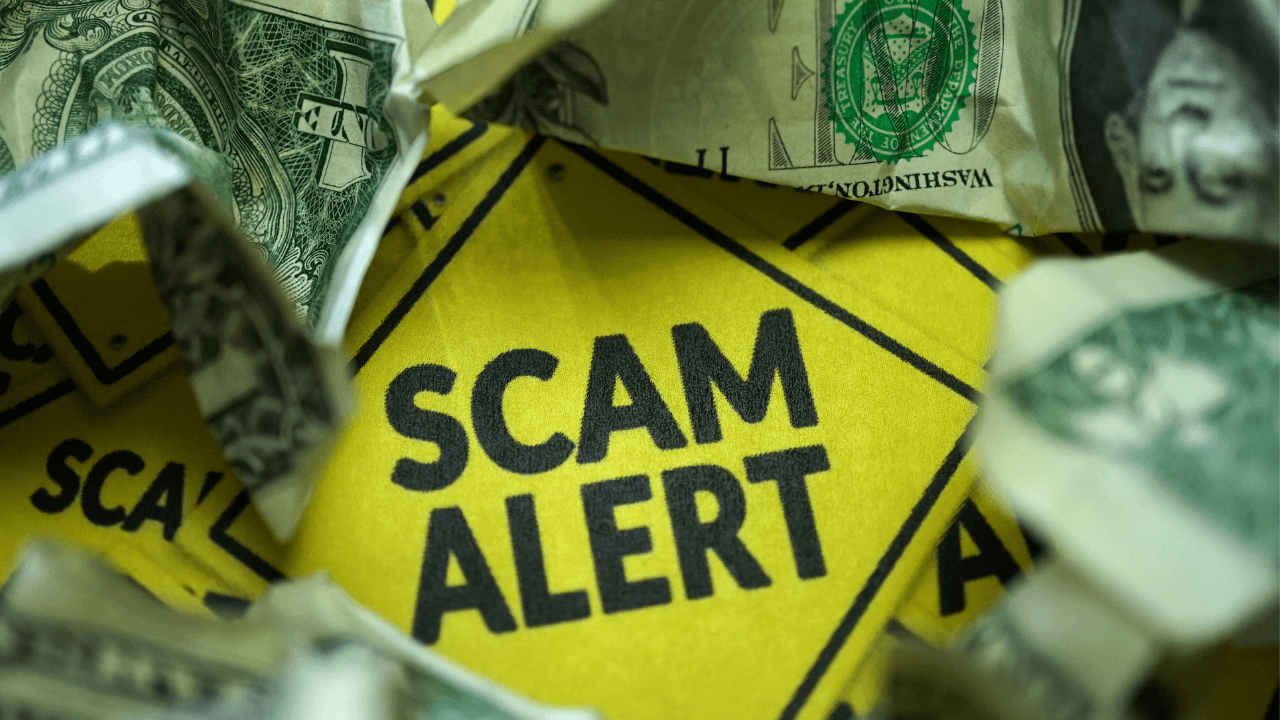Language:
Mastering Community Events: Key Strategies for Online and Offline Success

Organizing successful community events, whether online or offline, requires a blend of strategic planning, targeted engagement, and effective promotion.
With the right approach, these events can foster a sense of belonging, drive business growth, and create lasting memories for participants.
With doola Formation, you can register your event LLC with just a click of the button.
Entrepreneurs from all over the world harness doola’s platform to start their dream U.S. business while we handle the administrative tasks and they handle their business.
Defining Your Event Objectives
Setting Clear Goals
Setting clear goals is the cornerstone of any thriving community event. Begin by identifying the primary purpose of your event. Are you aiming to build community spirit, raise awareness for a cause, or generate leads for your business?
Next, establish specific, measurable objectives that align with this purpose.
For example, if your goal is to increase community engagement, you might aim for a certain number of attendees or a particular level of social media interaction.
Identifying Key Metrics
Identifying key metrics is essential for evaluating the success of your community event.
Start by determining what indicators will best measure your defined goals. For instance, to enhance community engagement, consider tracking attendance numbers, participant feedback, and social media interactions.
If revenue generation is a goal, monitor ticket sales, sponsorship contributions, and merchandise revenue. Qualitative metrics such as attendee satisfaction and volunteer experiences can also offer valuable insights.
Collecting these data points will help you assess your event’s effectiveness and provide a foundation for planning future events. Use surveys, social media analytics, and financial reports to gather accurate information.
Aligning with Community Needs
Aligning your event objectives with community needs is crucial for ensuring relevance and engagement. Start by researching to understand your target audience’s interests and concerns.
This can involve surveys, focus groups, or analyzing social media trends. Once you have a clear picture of your community’s values, tailor your event to address these priorities.
For example, if your community is passionate about environmental sustainability, consider incorporating eco-friendly practices and topics into your event.
Additionally, community members should be involved in planning to gather diverse perspectives and foster a sense of ownership.
Engaging Your Target Audience

Understanding Audience Demographics
Understanding audience demographics is essential for tailoring your event to meet your attendees’ needs and preferences. Begin by gathering data on your target audience’s age, gender, occupation, and interests.
This information can be sourced from surveys, social media analytics, and previous event records.
Once you have a clear demographic profile, customize your event elements—activities, speakers, and promotional strategies—to resonate with this audience.
For instance, a tech-savvy younger demographic might appreciate interactive digital components, while an older audience might value more traditional formats.
Additionally, cultural and socioeconomic factors could influence participation and engagement. By aligning your event with the specific characteristics of your audience, you increase the likelihood of a positive response and meaningful interactions.
Building Pre-Event Buzz
Building pre-event buzz is essential for generating excitement and ensuring a solid turnout. Start by creating a comprehensive promotional plan that leverages multiple channels, including social media, email newsletters, and community forums.
Share teasers and behind-the-scenes content to pique interest and create anticipation. Collaborate with influencers or community leaders to broaden your reach and add credibility.
Use countdowns and exclusive previews to maintain momentum as the event date approaches. Engaging visuals, compelling messaging, and clear calls to action are vital to capturing attention.
Encourage early registrations or RSVPs by offering incentives such as discounts, exclusive content, or early access. Interactive elements like contests, polls, and Q&A sessions can boost engagement.
Choosing the Right Venue
Factors for Offline Venues
Selecting the right offline venue is crucial for the success of your community event. Start by considering the location—ensure it is easily accessible for your target audience, with ample parking and public transportation options.
The venue size should match your expected attendance, providing enough space for activities without feeling overcrowded. Additionally, assess the amenities, such as audio-visual equipment, seating arrangements, and restrooms.
It’s also important to consider the venue’s ambiance and how it aligns with the theme and tone of your event.
Budget is another critical factor; ensure the venue fits within your financial constraints while still meeting your needs.
Lastly, check for any restrictions or regulations that might affect your event, such as noise ordinances or permit requirements.
Virtual Event Platforms
Choosing the right virtual event platform is critical for a seamless online experience. Begin by identifying the most essential features for your event, such as live streaming, breakout rooms, and interactive tools like polls and Q&A sessions.
Platforms like Zoom, Microsoft Teams, and Hopin offer a variety of functionalities that can cater to different types of events.
Ensure the platform supports the expected attendees without compromising performance or quality.
Additionally, considering the ease of use for organizers and participants, a user-friendly interface can significantly enhance engagement.
Security features like encryption and access controls are essential to protect your event from disruptions.
Finally, evaluate the platform’s customer support and reliability to ensure any technical issues can be quickly resolved.
Hybrid Event Considerations
Organizing a hybrid event, combining in-person and virtual elements, requires careful planning to ensure a cohesive experience for all attendees.
Start by selecting a physical venue with robust internet connectivity and advanced audio-visual capabilities to facilitate high-quality live streaming.
The venue should also have dedicated space for technical setups, such as cameras and microphones. Also, choose a virtual platform that seamlessly integrates with your physical event setup, allowing real-time interaction between on-site and remote participants.
Consider the needs of both audiences by offering engaging content that can be accessed online and offline.
Leveraging Social Media for Promotion

Crafting Compelling Messages
Crafting compelling messages is vital for effective social media promotion. Start by clearly defining your event’s unique selling points and key benefits. Use these to create a robust, engaging narrative that resonates with your target audience.
Keep your messages concise and focused, ensuring each post highlights a specific aspect of the event, such as keynote speakers, special activities, or exclusive offers.
Visuals are crucial, so include high-quality images, videos, or graphics to capture attention. Additionally, use action-oriented language to encourage immediate responses, such as “Register now,” “Join us,” or “Don’t miss out.”
Tailor your messages to fit the tone and style of each social media platform while maintaining a consistent overall brand voice.
Engaging Influencers and Partners
Engaging influencers and partners can significantly amplify your social media promotion efforts. Start by identifying influencers and organizations whose values and audience align with your event. Reach out to them with a clear proposal.
Provide them with compelling content and key messages to share on their platforms, ensuring consistency in your promotional narrative.
Co-hosting live sessions, Q&A events, or giveaways with influencers can create buzz and drive engagement.
Additionally, leverage your partners’ networks by encouraging them to promote the event through their social media channels, newsletters, and websites.
This collaborative approach expands your reach and adds credibility to your event.
Ensuring Smooth Execution
Detailed Event Planning
Detailed event planning is essential for ensuring smooth execution on the day of your community event.
Start by creating a comprehensive timeline that outlines every event phase, from setup to teardown. Assign specific tasks to team members and volunteers, ensuring everyone knows their responsibilities.
Develop a checklist that includes all necessary materials and equipment, and verify their availability well in advance. Additionally, a venue walkthrough must be conducted to identify potential issues and plan logistical details such as registration, seating arrangements, and signage.
Contingency plans are crucial; prepare for unexpected weather disruptions or technical difficulties.
Effective communication is critical, so establish a clear line of contact with your team and stakeholders.
Regular check-ins and updates will keep everyone aligned. By meticulously planning each detail, you can minimize surprises and ensure a seamless and enjoyable experience for all attendees.
Effective Communication Strategies
Effective communication strategies are vital for the seamless execution of your event. Establish clear communication channels for your team, participants, and stakeholders. Use Slack, email, and dedicated messaging platforms to keep everyone informed and connected.
Regular updates and briefings ensure that all team members know their roles and any changes in plans. Additionally, create a centralized information hub where attendees can easily access event details, schedules, and FAQs.
Transparent and timely communication helps to manage expectations and reduces confusion on the event day. Utilize signage, announcements, and digital notifications to guide participants throughout the event.
Lastly, encourage a feedback loop by actively listening to your team’s and attendees’ concerns and suggestions.
Post-Event Follow-Up
Post-event follow-up is crucial for maintaining engagement and evaluating the success of your community event. Begin by sending out thank-you emails to attendees, volunteers, and sponsors, expressing your appreciation.
This feedback is invaluable for planning future events. Share event photos, videos, and key takeaways on your social media channels and website to keep the momentum going.
Highlight attendee testimonials and success stories to build credibility and attract interest for future events. Finally, analyze the data against your initial goals and metrics to assess your event’s impact.
How doola Can Support Your Events Business
At doola, we ensure that your business gets all the support you need and complies with the regulations every step of the way. That is what we offer with our doola formation package.
With doola, you can ensure that your business has all the regulatory checks and is future-proof for growing exponentially.
We don’t just stop there; with the doola Total Compliance bundle, we also offer bookkeeping and tax management services to keep your business as compliant as possible so that you can witness exponential growth.
Sign up today to form your U.S. LLC.
FAQs

What are the key objectives to consider when planning a community event?
The primary objectives of a community event should be clearly defined to ensure its success. These can include building community spirit, raising awareness for a cause, generating business leads, or fostering engagement.
Establishing specific, measurable goals that align with these objectives is crucial.
How can I effectively engage my target audience for a community event?
Engaging your target audience involves understanding their demographics, interests, and preferences. Tailor your event elements—such as activities, speakers, and promotional strategies—to resonate with them.
Building pre-event buzz through social media, email newsletters, and community forums and offering incentives for early registration can also drive engagement.
What factors should I consider when choosing an offline community event venue?
Key factors include the venue’s location, accessibility, size, amenities, and ambiance. Ensure your audience can easily reach the venue, that it provides enough space for your expected attendance, and that it fits your budget.
Additionally, check for any restrictions or regulations that could impact your event.
How can social media be leveraged to promote a community event?
Social media promotion should focus on crafting compelling messages that highlight the event’s unique selling points and benefits. Use engaging visuals, clear calls to action, and interactive elements like contests and polls.
Engaging influencers and partners can also amplify your reach and add credibility to your event.
What are some effective strategies for ensuring the smooth execution of a community event?
Detailed planning is essential for smooth execution. Create a comprehensive timeline, assign tasks to team members, and develop a checklist of necessary materials and equipment.
Conduct a venue walkthrough to plan logistics and prepare contingency plans for potential issues. Effective communication strategies, including regular updates and clear team and attendee interaction channels, are also crucial.
Keep reading
Start your dream business and keep it 100% compliant
Turn your dream idea into your dream business.














